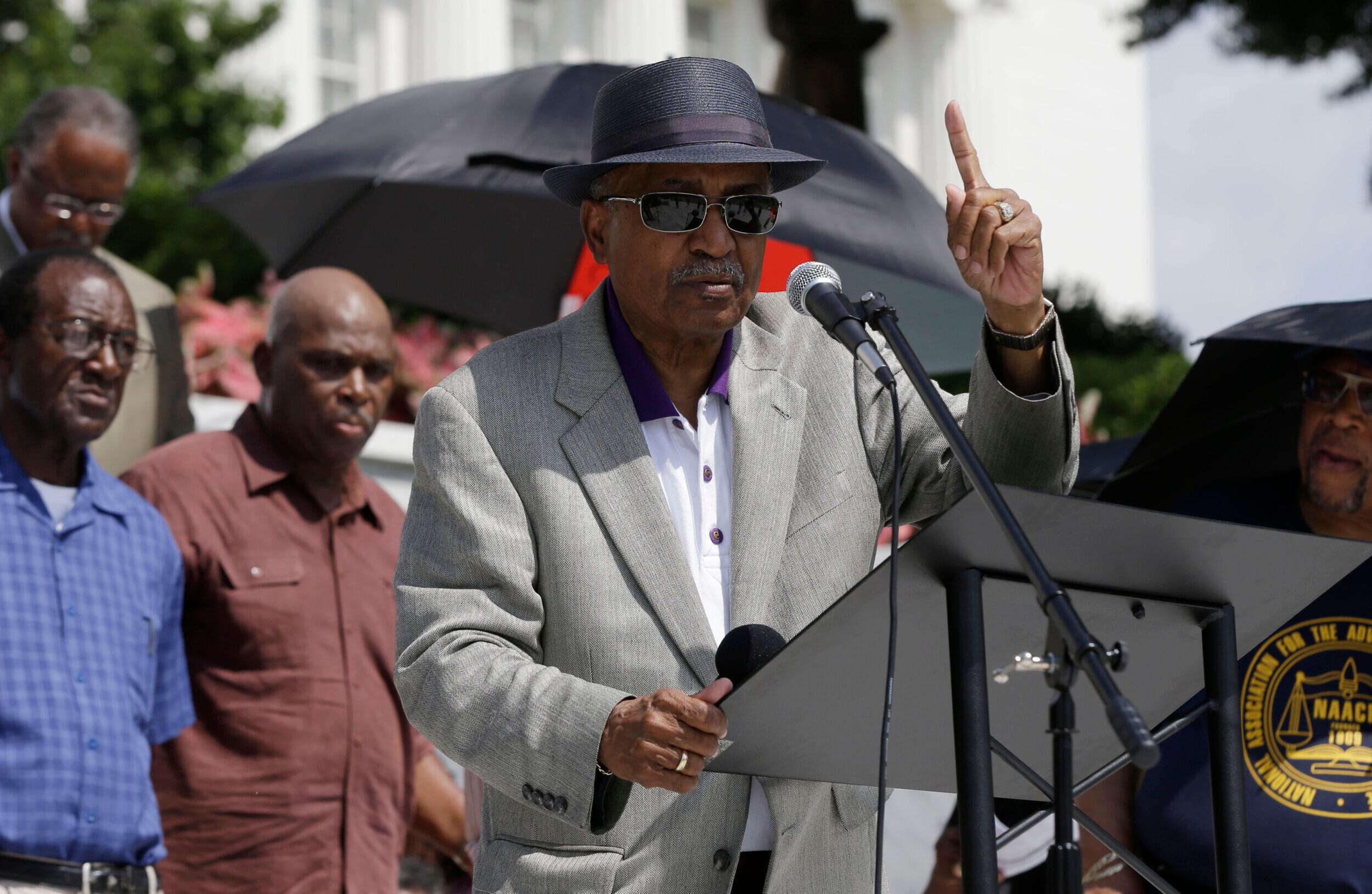Last week, with the State Democratic Executive Committee electing Randy Kelley as the new chairman of the Alabama Democratic Party, long-time party boss Joe Reed showed he was back in charge.
Kelley was endorsed by his decades-long friend Reed, the head of the Alabama Democratic Conference (ADC).
Reed has been a well-known fixture of the Alabama political scene for nearly seven decades.
He spoke with 1819 News about the election and where the Democratic Party is headed next.
“Saturday was a good day,” Reed said. “We have one chairman now. We have got a good man in Randy Kelley. We felt good because we worked real hard, and we had the most votes.”
In 2018 the SDEC re-elected Nancy Worley as chair and Kelley as vice chair. That election was invalidated in 2019 by the Democratic National Committee (DNC).
“The party was highjacked,” Reed said. “One man was responsible for that. Doug Jones was the architect of that.”
“We [the ADC] endorsed Doug Jones [for U.S. Senate in 2017] when we had six candidates running,” Reed said. “We endorsed Jones over a young black man in Mobile that would have been a great Senator, but we knew he could not win.
“Doug Jones got elected and then tried to take over the Democratic Party. We don’t let any one politician control the Democratic Party. George Corley Wallace tried to do the same thing in 1972 against [then-ADP Chairman] Bob Vance at the Parliament House in Birmingham, and we stopped him. We have to do what is best for the [Alabama Democratic] Party and not for just any one man, no matter how powerful.
“Thomas Perez was the [National] Democratic Chairman, and Perez was trying to do a favor for Doug Jones because he was a U.S. Senator. Nancy [Worley] never accepted that election [of Chris England]. They had no basis for it. We have been in court and are still in court. We can settle that lawsuit now.”
The 2019 SDEC meeting changed the ADP bylaws.
“We need to take a look at that,” Reed said. “What they were doing was diluting the strength of the black vote.”
Reed has many detractors both inside and outside the Alabama Democratic Party. In 2018 then-congressional candidate Mallory Hagan blasted Reed and the ADC for charging candidates for using its get-out-the-vote apparatus.
“I don’t apologize,” Reed said of Hagan’s criticism. “I am not going to ask those people [campaign volunteers] to stand out there for thirteen hours at the polls and not get paid.
“When people buy commercials from radio, TV, and newspapers for campaigns, they don’t complain about the cost, but they want black folks to work for free. Some of these candidates run, and all they bring is that they have ambition and are breathing. You have got to bring something to the table. Some of these candidates have paid the qualifying fee, and then they expect someone else to pick up the costs of their campaign. They should never even have run.”
He also has a loyal following of thousands of black political activists and voters across the state that take his endorsements very seriously.
Reed burst on the scene in 1969 when he became President of the all-black Alabama State Teachers Association. That same year he and the head of the all-white Alabama Education Association, Paul Hubbert, merged their two separate teachers’ associations into the Alabama Education Association. From 1969 to 2011, he served alongside Executive Secretary Hubbert as associate executive secretary. The two friends eventually grew to dominate Alabama politics until the takeover of both Houses of the Legislature by Republicans in the 2010 election. He and Hubbert, who passed away in 2014, both retired from the AEA in 2011.
“We were very successful, and we had lots of power because progressive white and blacks worked together,” Reed said, “The meeting did not start until Paul Hubbert and I walked into the room. ... That was a joke.”
Before 1960 blacks, when they could vote, were overwhelmingly Republican due to the influence of President Abraham Lincoln and Frederick Douglass. The Alabama Democratic Conference was founded in 1960 to encourage blacks to vote for Bobby Kennedy. Arthur Shores was the first ADC Chairman. In 1979 Reed became the chairman of the ADC.
“Bob Vance asked me to bring blacks into the Democratic Party,” Reed said. “I did that. Now they say that blacks have too much influence in the party. What has Joe Reed done wrong?
“We are the backbone of the Democratic Party. I come into the office every day to work, and I don’t take a salary. That’s more than most of them can say.
“The Alabama Democratic Party should not be black-controlled. It should not be a white-controlled party. We need white folks, especially poor white folks, to vote in their own self-interest, but we can’t be the ones telling them that. We need white leaders to rise up and do that.”
To connect with the author of this story, or to comment, email brandon.moseley@1819News.com.
Don’t miss out! Subscribe to our newsletter and get our top stories every weekday morning










